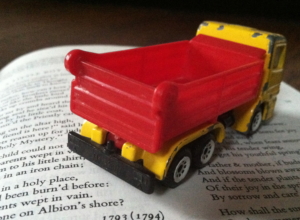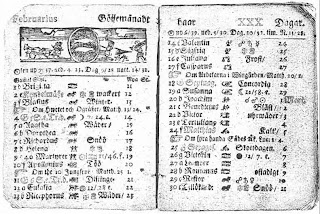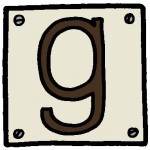
Red Dress by Tatyana Ostapenko
1.
I remember
I had to have it,
Sensing somehow
It was already mine,
Sewn to my heart
Torn from me and
Set in the window
For others to claim.
I was desperate
For mending,
Desperate to have that dress
Knitted to my skin.
You understood.
You bought it for me,
Let me wear it home,
Let me wear it everyday
As I skipped through the woods,
And every night you washed it
And told me the story
Of the girl and the wolf.
2.
I thought it was a story
About a girl and a wolf,
Until I met the wolf
And he ate me.
He told me he loved
That red dress,
The way I wore it
When I walked,
Like it was part of me,
Like it was my skin
Flush with the blood
Of my heart.
When you pulled me out,
It didn’t feel like saving
Because I’d already died.
You claimed the body,
Filled it with food
And words,
Until it stood up,
Teetering
In high heels,
And set off across the land.
It took me a long time
To see the earth
As it is,
As you knew it,
With its dark holes,
Harrowed soil,
Restless waters and
Perennial forests.
3.
Before I enter the room
I see you
Looking out the window,
Seeing yourself
Out there
Rooted
Among the trees.
I am tempted
To leave you there,
But then I hear your voice
Telling me to do
What I’m supposed to do.
I think you know me,
Though you call me the wrong name,
Because you ask why
I’m not wearing
My red dress.
I tell you I’m grown up,
It doesn’t fit,
It’s been gone a long time,
But you shake your head,
As if I don’t understand
And ask me again.
Last week I participated in SPARK, an internet event in which visual artists and writers share their work to inspire new work. My partner Tatyana Ostapenko sent me the painting above. Over the next ten days I wrote my poem in response. My goal wasn’t to illustrate the painting but to allow it to spark my own creative journey. At the same time I sent my poem “Frog Woman” to Tatyana to inspire a new painting by her.
My favorite part of the process was opening Tatyana’s painting. I had absolutely no idea what I would see. I was immediately captivated by the little girl in her red dress, standing just in front of a deep, dangerous chasm and then far in the distance, a beautiful forest. As I sat down to write I drew on these experiences—sometimes feeling the need to own a piece of clothing as if it were somehow already mine, the innocent joy of Little Red Riding Hood as she set off into the woods, my father’s last days which he spent looking out the window at a beautiful field and forest, and, of course, my relationship with my mother.
SPARK happens four times a year, each time with more participants. For more information and to see more inspired art, go to the SPARK website.
To see more of Tatyana’s art, please go to her website or to her flickr gallery.
Finally, to enjoy more Poetry Friday go to Jama Rattigan’s Alphabet Soup.
(c) 2012 Elizabeth Ehrenfest Steinglass, all rights reserved






